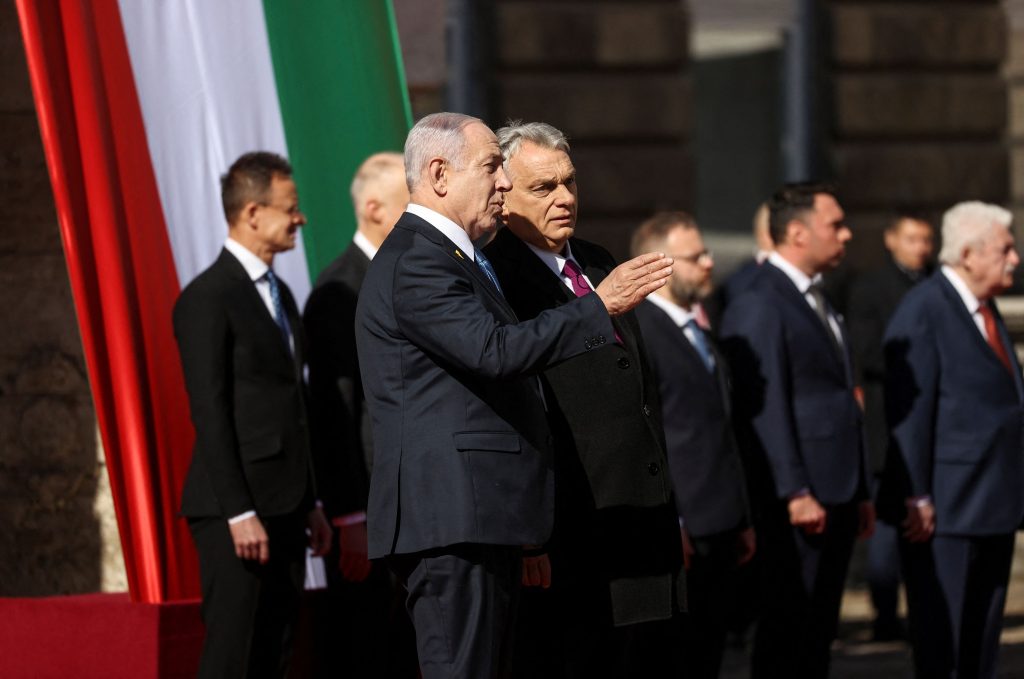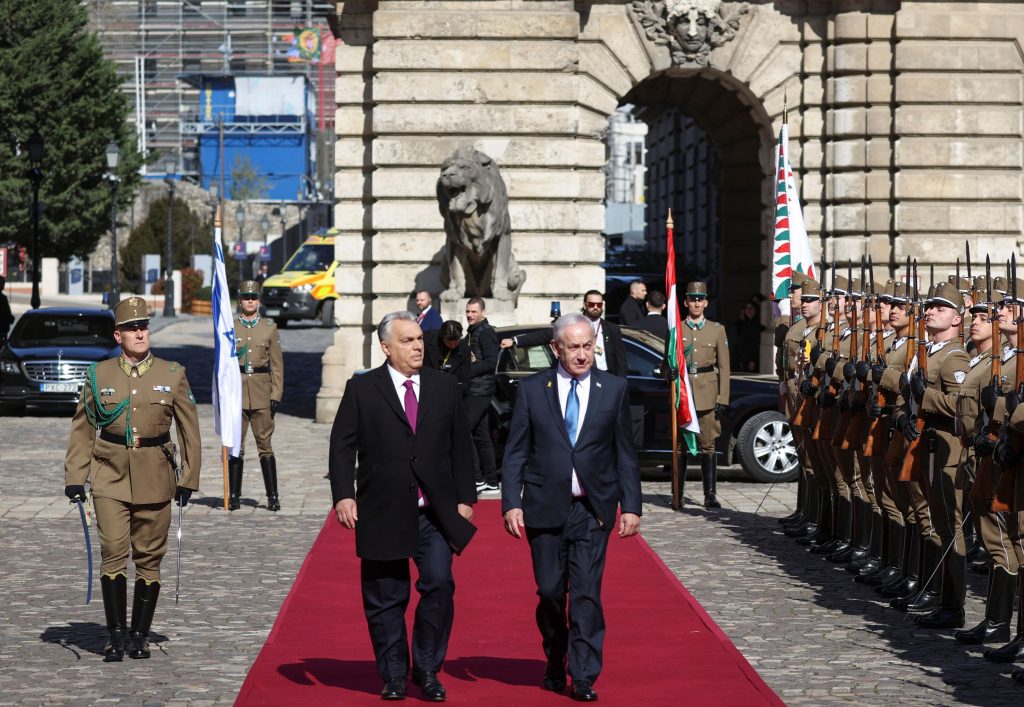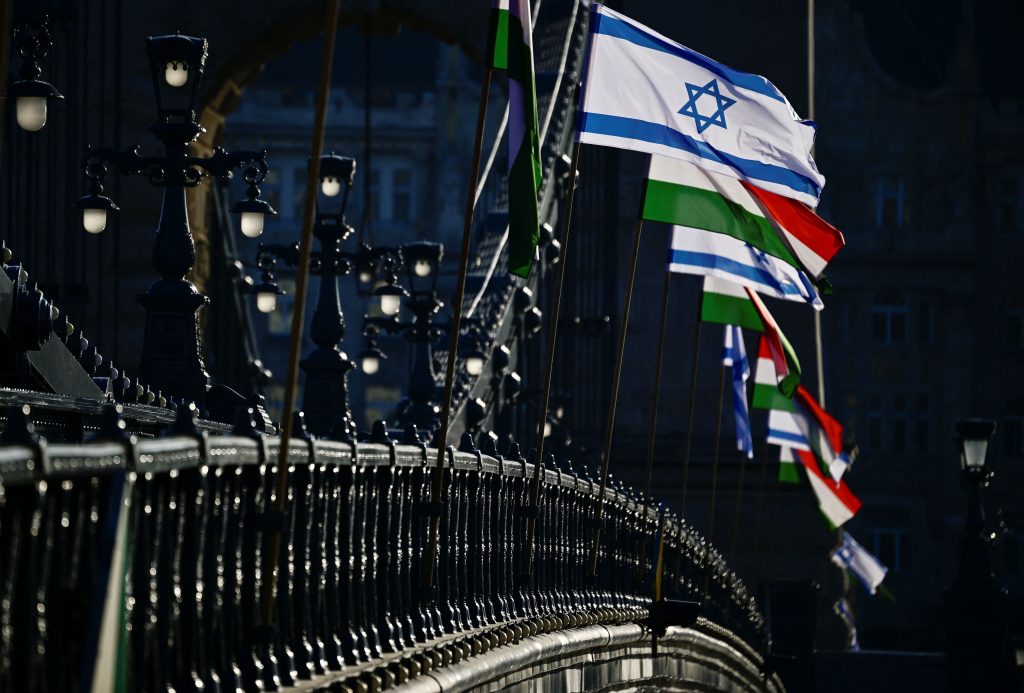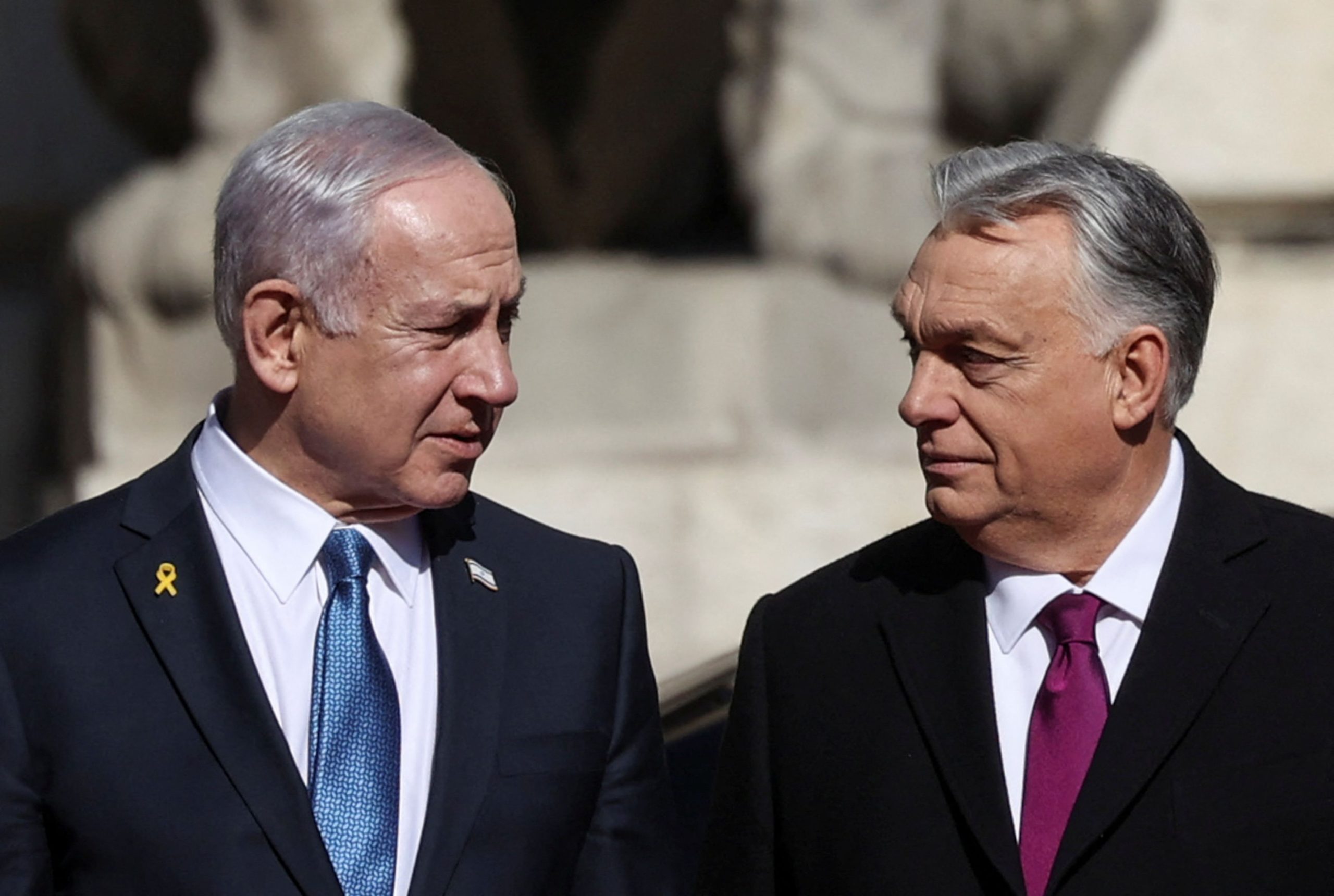Hungary has announced its decision to withdraw from the International Criminal Court (ICC), just as Israeli Prime Minister Benjamin Netanyahu, who is wanted under an ICC arrest warrant, arrived in Budapest for a state visit.
The move aligns with right-wing Prime Minister Viktor Orbán’s stance against the court’s decision to issue arrest warrants for Netanyahu and his former defense chief over alleged war crimes in Gaza.
Hungary’s Decision to Leave the ICC
According to Reuters, Hungary is a founding member of the ICC, having signed the Rome Statute in 1999 and ratified it in 2001, and as a result is theoretically obliged to arrest and hand over anyone subject to a warrant from the court. However, according to Orbán’s chief of staff, Gergely Gulyás, the law was never fully incorporated into Hungary’s legal system, meaning the country was not obligated to enforce ICC rulings.

Hungarian Prime Minister Viktor Orban listens to Israeli Prime Minister Benjamin Netanyahu during a welcoming ceremony at the Lion’s Courtyard in Budapest, Hungary, April 3, 2025. REUTERS/Bernadett Szabo
On Thursday, Gulyás confirmed that the Hungarian government would launch the withdrawal process immediately. The bill to formally exit the ICC is expected to pass easily in Hungary’s parliament, which is dominated by Orbán’s Fidesz party.
Orbán first hinted at leaving the ICC in February after U.S. President Donald Trump imposed sanctions on the court’s prosecutor, Karim Khan. At the time, Orbán posted on X:
“It’s time for Hungary to review what we’re doing in an international organization that is under U.S. sanctions.”
Netanyahu’s Visit and Hungary’s Support for Israel
Orbán’s invitation to Netanyahu came just one day after the ICC issued its arrest warrant for the Israeli leader. Hungary has consistently been a key ally of Israel within the European Union, often blocking EU statements critical of Israeli policies.

Hungarian Prime Minister Viktor Orban and Israeli Prime Minister Benjamin Netanyahu walk on the red carpet during a welcoming ceremony at the Lion’s Courtyard in Budapest, Hungary, April 3, 2025. REUTERS/Bernadett Szabo
Netanyahu and his former defense minister are accused of war crimes, including murder, persecution, and starvation as a weapon of war, in what the ICC describes as a “widespread and systematic attack against the civilian population of Gaza.”
Israel, however, has rejected the ICC’s allegations, calling them politically motivated and illegitimate. Netanyahu’s government argues that Israel has the right to defend itself after the Hamas-led attack on October 7, 2023, which killed 1,200 people and saw over 250 taken hostage, according to Israeli sources.
Hungary’s Stance Against the ICC Ruling
By withdrawing from the ICC, Hungary ensures it will not be obligated to arrest Netanyahu if he visits the country again. Orbán has openly criticized the court, calling its ruling “brazen, cynical, and completely unacceptable.”

Israeli and Hungarian flags flutter along the Chain Bridge on the day Israeli Prime Minister Benjamin Netanyahu is expected to meet Hungarian Prime Minister Viktor Orban, in Budapest, Hungary, April 3, 2025. REUTERS/Marton Monus
The decision has sparked criticism from international human rights groups, who argue that Hungary’s withdrawal weakens global efforts to hold leaders accountable for war crimes.
The ICC had also issued an arrest warrant for a Hamas leader in November, but his death was later confirmed after the warrant was made public.



